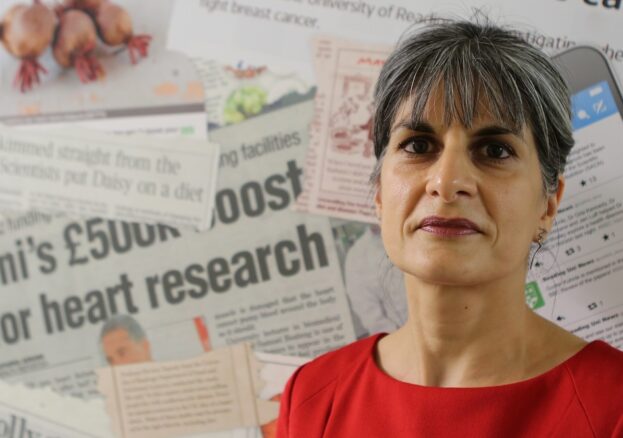Starting the conversation
As she begins the review, Professor Yaqoob believes that it’s important she shares her own experiences of growing up amidst racist abuse, and encourages us all to start having these conversations no matter how difficult or uncomfortable they might be.
She said: “As a second generation British-Pakistani growing up in South London in the 1970s and 1980s, being at the receiving end of racist abuse was not at all unusual. My dad ran a grocery shop with a halal meat counter at the back for ten years before deciding that he was British enough to buy the fish and chip shop across the road, swapping the samosas for battered cod and scampi. Three days after opening, someone walked in and said, ‘We don’t want Pakis running our fish and chip shop.’ A local campaign began; mainly graffiti, but sometimes broken windows. Dad had to sell the fish and chip shop after three months.
“I talk about this frankly – and I hope you’ll forgive the informal style – but I find that people sometimes shift uncomfortably when I do so. Conversations about race and racism are not meant to be comfortable. If we can’t have those difficult conversations, we’ll never move forward.
“If racism has played a part in your lived experience for as long as you can remember, it’s easy to imagine how it might affect the way you interact with people, the extent to which you trust people, what you do and where you go, and how likely you are to want to make yourself visible. When we think about the barriers that exist for underrepresented groups to take on visible roles, we don’t really think or talk about any of this.
“You might think that this is all in the past and that things must surely be much better now, despite recent events. They are in many ways, but deep-rooted, structural racism is still here and it’s pervasive.
“When I first came to work at this University, I was invited to have lunch with two very senior figures. One of them described how on the previous evening he had looked out at a sea of faces in a lecture theatre and remarked that ‘Not a single one of them was British.’ I didn’t say anything at the time, but of course I wanted to ask him what exactly he thought a British face looked like.”
Actively listening
Professor Yaqoob explains the steps the University is taking to review what more we can do to support our BAME community at Reading.
She said: “The Vice-Chancellor has asked me to work with Allan Laville, the Dean for Diversity & Inclusion, to undertake a review to understand racial inequalities within the University and to recommend actions to address them.”
Our first step towards this will involve active listening to understand the experiences of our whole community – colleagues, students and alumni. We want to reach as many of you as possible and provide the opportunity to inform and influence our review.
Parveen added:
“Some of you have already generously offered your help. If you haven’t, we’ll need you too. This is about all of us.”
Many former University students and staff have already shared their experiences on social media – both positive and negative – of race, racism and life as a BAME individual at the University of Reading. Your perspectives of the University’s past, present and future will help us in our wider challenge to understand and tackle racism.

